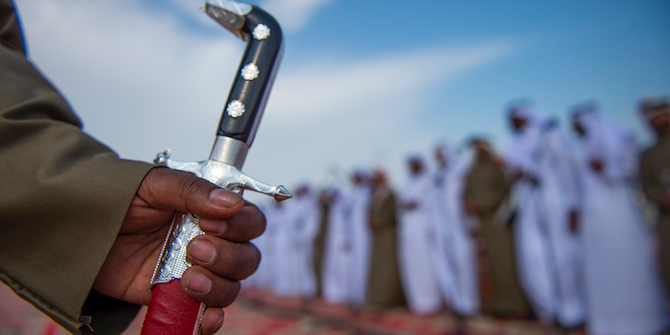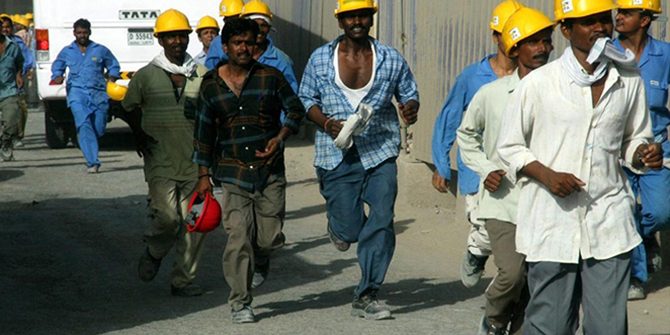by Saoud A. M. Al-Furaih

July 2022 was a lesson for the history books, when President Biden visited Saudi Arabia and broke a campaign promise that he would let Saudi Arabia be a pariah state. But why would any President of the United States (US) be willing to face such humiliation right in front of the world? The answer is not about Saudi’s oil production, as the US produces more oil than Saudi Arabia and the UAE combined. The answer relates to OPEC, an intergovernmental organisation that was founded in 1960 and currently consists of 13 members that work to stabilise oil prices, which is unofficially led by Saudi Arabia.
However, OPEC’s success has created a new giant within the GCC that is less coordinated than OPEC – called the Sovereign Wealth Funds (SWF). Altogether, the GCC holds $3.2 trillion of assets in these funds, the equivalent of 60% of the Market Cap of all Chinese-listed companies. Given the latest rise in oil prices, these funds are likely to increase. Yet, unlike OPEC, each country operates on its own rather than creating a joint system. Were they to do that, they could become more powerful on the global stage while still retaining their individual sovereignty, as OPEC does currently.
As the oil boom resumes, the six GCC countries have two paths to follow: either save and invest, or redistribute that wealth by introducing new welfare programs. So far, these countries are not on the same page. Saudi Arabia announced in May that the next oil windfall will be allocated to the Public Investment Fund and the National Development Fund. Qatar will use their oil and gas windfall to develop its gas expansion plans. It has also introduced a welfare program by raising the minimum pension on retirees to $4,120. Oman will use the funds to lower their debt burden and boost spending on designated projects.
Bahrain plans to double its contributions to the Future Generations Reserve Fund by setting aside $2 from every barrel of oil that exceeds the $80 limit. Kuwait, probably due to the political instability in the last two years, is moving more towards welfare redistribution, and in a significant way. So far, Kuwait has introduced five welfare programs that amounts to around $7.5 billion. Below is a breakdown of those welfare programs:
| Program Name | Estimate Cost in USD |
|---|---|
| Loan deferral program | $ 1.9 Billion |
| One-time payment of 10,000 USD to Pensioners | $ 1.7 Billion |
| COVID front liners | $ 1.9 Billion |
| Housing program | $ 966 Million |
| Buying leave days from public sector employees | $ 969 Million |
| Total | $ 7.5 Billion |
Even though Kuwait has made great efforts when it comes to its welfare redistribution, the country is still much better off than its neighbours – as shown below:
| Country | Total Debt + Interest | Sovereign Wealth Fund + Pension Fund |
|---|---|---|
| Abu Dhabi | $ 60 Billion | $ 1,030 Billion |
| Oman | $ 121 Billion | $ 17 Billion |
| Bahrain | $ 47 Billion | $ 19 Billion |
| Kuwait | $ 18 Billion | $ 843 Billion |
| Qatar | $ 113 Billion | $ 461 Billion |
| Saudi Arabia | $ 358 Billion | $ 608 Billion |
| Dubai | $ 49 Billion | $ 301 Billion |
| Total | $ 766 Billion | $ 3,278 Billion |
Rabbit Hole
When the 1973 oil embargo was announced, Kuwait saw their oil revenues jump from $1.9 B in 1973 to $11.6 B in 1975, a 510% increase in just two years. This astonishing increase forced the ruler to issue the first ever Sovereign Wealth Fund, using a law that stated that 10% of Kuwait state revenues would go into this future fund. That rule was honoured whether Kuwait was in surplus or deficit. A total of $172 B has thus been transferred in the last 44 years. Even during the Iraq invasion, Kuwait applied that law.
On 13 September 2020, a new law was introduced, stipulating that the government will only contribute to the Sovereign Wealth Fund if the state announces a budget surplus. And it does not necessarily have to be 10%, but rather what the government considers reasonable. This new law was introduced during the large drop in oil prices during COVID-19. But as oil prices jumped to levels even higher than pre- COVID, the government was, and still is, inclined to introduce more “welfare chauvinism” programs to manage domestic politics rather than reinstate the 1976 law. This is a risky move that will be almost impossible to abolish in the future. In his book, The High Cost of Good Intentions, John Cogan explains in depth how these welfare programs will become the new norm and set the base for future expansions to these programs, which will deplete Kuwait financially in a world were fossil fuel will no longer be as important.
In order to adapt to a future where the demands for fossil fuel may decline over the next two decades, GCC nations will have to shift their economies from oil and gas exports to capital exports. This is precisely what some countries have begun to do. A key moment related to this development was Saudi Arabia’s listing of Aramco in 2019, where the country sacrificed a share of it crown jewel to provide liquidity to its global investment pool. Whether or not it will survive this future depends highly on its fiscal responsibility. So far, Kuwait, although currently fiscally powerful, is on the wrong track. The oil windfalls should be invested in a post-oil world, not in welfare programs that will only create more political instability. A unified policy on the GCC SWF’s transfers and investment policies would create a scapegoat for the Kuwaiti Government to avoid such pressures.
Kuwait cannot do this alone. If Biden’s visit brought any lesson of value to the region, it is that positive coordination will bring results. The six GCC nations need to coordinate on a minimum contribution to their Sovereign Wealth Funds, as they have done in OPEC to ensure oil prices stability and prepare for a post-oil world. That coordination will give the entire region a stronger and more viable voice on the global stage.






